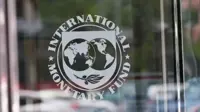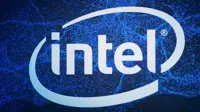They were a great team
18 Jun 2009
Many explanations have been put forward for the BJP's stunning defeat in the 2009 elections. Within the party opinion is divided between those who blame deficiencies in its management of the elections and those who blame its policies.
 The former ascribe defeat to sharp and often public differences between its leaders, notably its President Rajnath Singh and its General Secretary Arun Jaitley, and less publicly to similar differences between Advani, Venkaiah Naidu and Singh. The latter ascribe it to the confusion that prevailed in the party over its policies.
The former ascribe defeat to sharp and often public differences between its leaders, notably its President Rajnath Singh and its General Secretary Arun Jaitley, and less publicly to similar differences between Advani, Venkaiah Naidu and Singh. The latter ascribe it to the confusion that prevailed in the party over its policies.
But as the weeks have gone by and the BJP has begun to fall apart, the cause has become increasingly clear: Vajpayee is no longer there and Advani has been unable to fill his place.
If one had to write an epitaph for the BJP it might well be ''they were a great team''. Only now, are we realising the extent to which the two were conjoined in the attempt to create a right-of-centre alternative to the Congress. The two came close to succeeding. Between 1998 and 2004 they gave India one of its more effective governments. Had the NDA won in 2004 they might have had the time to complete the process. But that defeat plunged the BJP back into an ideological turmoil from which it never recovered. Vajpayee's subsequent exit from the leadership turned the BJP into a rudderless ship.
Today, it is obvious to all but a tiny handful on the far right of the Sangh Parivar, the root cause of its loss of direction is the BJP's failure to cut the shackles of Hindu communalism.
Sudheendu Kulkarni, Prime minister Vajpayee's speech writer and Advani's campaign manager this year, has candidly admitted that the NDA owed its defeat this year to the BJP's failure to re-forge its alliance with the main regional parties in four critical states - West Bengal, Orissa, Andhra and Tamil Nadu. These had attributed their defeat in 2004 to anti-Muslim policies of the lunatic fringe within the sangh Parivar. Yashwant Sinha says much the same thing in his letter to BJP president Rajnath Singh.
Jaswantt Singh has characteristically dismissed the attempt to convert 'Hindutwa' into an ideological rallying point by asking what the word means. And even Arun Jaitley conceded without hesitation, at the party's 16 May press conference, that putting Narendra Modi up as the BJP's prime ministerial candidate had been 'a mistake'.
But the BJP's failure to distance itself from Hindu communalism is only half the story. The other half is that its preoccupation with recovering its ideological platform prevented it from exploiting its successes in governance during its six years in power. The barest list of these is impressive to say the least.
The BJP turned India into a nuclear power in 1998, thereby changing the world's perception of India. Not only did it skilfully minimise the economic impact of the resulting sanctions, but it built up foreign exchange reserves and a current account balance of payment surplus that enabled it to start lowering interest rates sharply in 2001. That in turn kick-started the boom of 2003 of which the Congress became the main beneficiary.
Much of the spadework for the Indo-US nuclear deal was done during Mr. Vajpayee's tenure and it was he who began the repair of India-Pakistan relations, which resulted in the April 2005 understanding between Musharraf and Dr. Manmohan Singh. Had the BJP been focussed on governance issues during its five years out of power it could have credibly claimed a large share of the credit that has gone to the Congress. But instead it allowed its own hard liners to hustle it into a position of mindless opposition that turned it into a spoiler in peoples' eyes.
The BJP's preoccupation with its own internal battles also prevented it from gauging the profound change that was taking place in the mood and aspirations of the people. It failed to realise therefore that ordinary Indians were no longer preoccupied with the past - real or imagined - and were becoming increasingly anxious about their future. In the villages the joint family was breaking down and in the towns all the new employment being created was in the unorganised sector. Millions upon millions of workers were without any kind of protection whatever.
Development had opened avenues of advancement for them but to exploit these they needed stability and predictability in their lives, for they were the first losers from every strike, demonstration, hartal or outbreak of violence. When the VHP and the Bajrang Dal descended on Jammu during the Amarnath land agitation, with open exhortations to Hindus to kill Muslims, using the Indian flag and the saffron robes of sanyas to protect them from the wrath of the police they undid all that Vajpayee had achieved in Kashmir and sent a thrill of apprehension through the country. When they descended on newly converted Christians in Orissa they drove Naveen Patnaik out of the NDA alliance.
A non-party with a non-image
Caught between a strategy that required it to stoke ever increasing amounts of social discord, and one that required the exact opposite, the BJP has become a non-party with a non-image. As a result, the youth are no longer flocking to it as they were doing in the '90s. This is the true meaning of its 3.4-per cent fall in the share of the vote, spread over 19 out of 21 heartland states.
The blame for allowing this lack of direction to continue for five long years must ultimately fall on L K Advani. He was Vajpayee's lifelong partner in politics.
Together they built the most effective counter magnets to the Congress that the country had seen. Advani not only understood Vajpayee's thinking, but fully endorsed it. When asked by this writer whether he shared the powerful advocacy of diversity and pluralism that Vajpayee had unveiled in his New Years' day 'musings' Advani said in January 2004 that he agreed 'more than a hundred per cent'.
But the rudderlessness of the BJP during the past five years shows that he either lacked the courage of his convictions or the personality to reign in the younger , less scrupulous but ambitious elements in his party.
Mr. Advani has taken the responsibility for his party's failure but other leaders of the BJP's organisational wing have preferred to try and crush the dissent. Given the totalitarian organisation of the Sangh parivar, this is hardly surprising. But it is the last thing that the BJP and the country need just now. Whether they like it or not, the country has reached a crossroads, and the BJP has done so too. For six decades the party has been ruled by remote control by unelected ideologues in the RSS. This was convenient for the leaders of the parliamentary party because it gave them dedicated cadres who could mobilise the vote for it during the elections.
But the link with the RSS has now become an obstacle to the acquisition of power. Messrs Vajpayee and Advani understood this as long ago as in 1993 when they decided, quietly, to back away from the 'Hindutwa' agenda. But they continued to live with the ambivalence of their link with the RSS and its more intolerant progeny rather than bring the issue to a head.
They paid the price for this in Gujarat in 2002 and have cioontinued to pay it ever since. Today there are only two roads left open to it: either the newly appointed sarsanghchalak of the RSS makes an 180 degree turn in his definition of Hindutwa, or the BJP must go it alone. Retreating into a shrinking ghetto is the last thing it should do. Unfortunately that is where it seems headed today.






.webp)

















